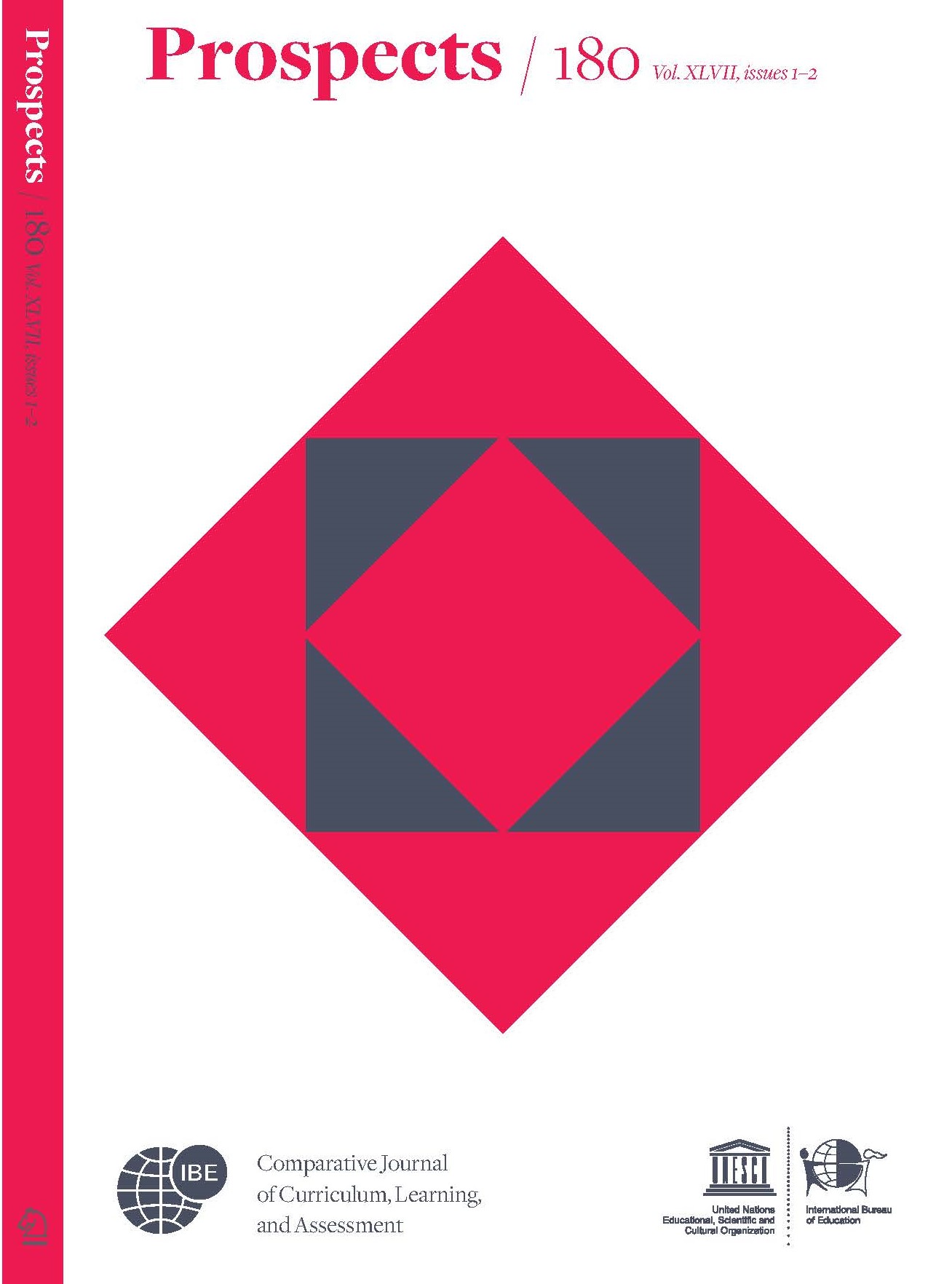
Revista / Journal
Prospects, Comparative Journal of Curriculum, Learning, and Assessment (©UNESCO)
Fecha de publicación / Publication date
2020
ISSN
Print ISSN: 0033-1538; Online ISSN: 1573-9090
Páginas / Pages
169-186
Educational inclusion and equity in Latin America
An analysis of the challenges
Ignacio Calderón-Almendros, Mel Ainscow, Silvia Bersanelli & Pamela Molina
Abstract
This article draws on its authors’ experiences of engaging with the narratives of communities in Latin America implicated in the promotion of inclusion and equity in education. It illustrates how the voices of students, teachers, and families can throw light on the challenges involved. In particular, the article shows how their conditions, difficulties, achievements, fears, and hopes can provide a better understanding of their complex realities and help to shape theories of change. Incorporating the views of different stakeholders, the article focuses on the process of enabling people to become critically conscious about their realities, at the same time developing theoretical tools to become more inclusive in their thinking. It argues that inclusive education is a radical political project that needs to be closer to the feelings and knowledge of oppressed people. This means that we must construct new narratives that encourage people to make their own challenges; this, in turn, can contribute to change at the system level. The article proposes a framework that can be used to review the situation in other countries and offers recommendations as to how to introduce it.
CALDERÓN ALMENDROS, I., AINSCOW, M., BERSANELLI, S., & MOLINA-TOLEDO, P. (2020). Educational inclusion and equity in Latin America: An analysis of the challenges. Prospects, 49(3), 169-186. https://doi.org/10.1007/s11125-020-09501-1
------------------------
Inclusión Educativa y Equidad en Latinoamérica: Un análisis de los desafíos
Resumen
Este artículo se basa en las experiencias de sus autores al involucrarse con las narrativas de comunidades en América Latina implicadas en la promoción de la inclusión y la equidad en la educación. Ilustra cómo las voces de estudiantes, maestros y familias pueden arrojar luz a sus desafíos. En particular, el artículo muestra cómo sus condiciones, dificultades, logros, temores y esperanzas pueden proporcionar una mejor comprensión de sus complejas realidades y ayudar a dar forma a las teorías del cambio. Incorporando las opiniones de diferentes partes interesadas, el artículo se centra en el proceso de facilitar que las personas adquieran una conciencia crítica sobre sus realidades, al mismo tiempo que desarrollan herramientas teóricas para ser más inclusivas en su pensamiento. Sostiene que la educación inclusiva es un proyecto político radical que necesita estar más cerca de los sentimientos y conocimientos de las personas oprimidas. Esto significa que debemos construir nuevas narrativas que alienten a las personas a desarrollar sus propios desafíos; esto, a su vez, puede contribuir al cambio a nivel del sistema. El artículo propone un marco que puede ser util para revisar la situación en otros países y ofrece recomendaciones sobre cómo introducirlo.